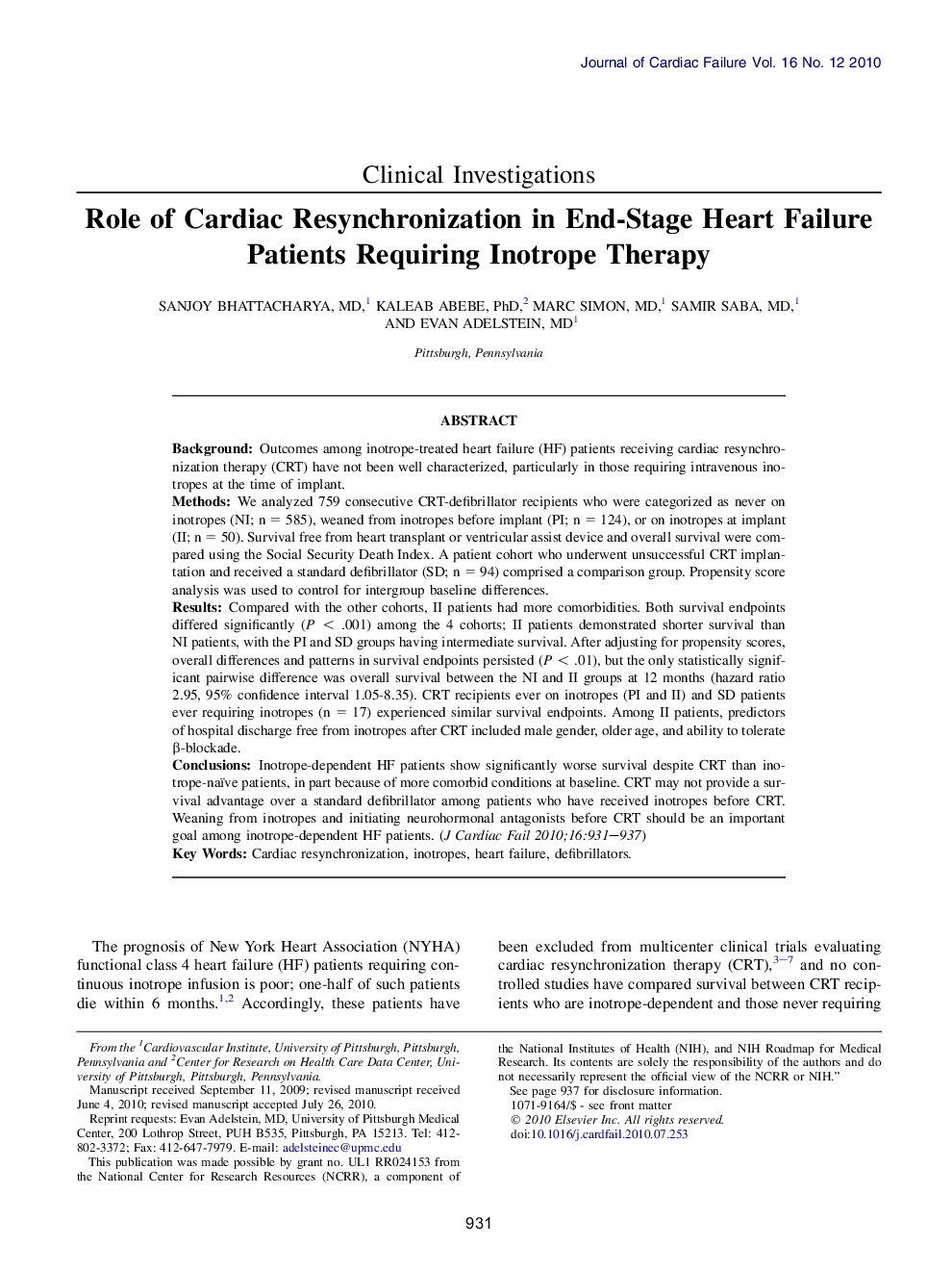| Article ID | Journal | Published Year | Pages | File Type |
|---|---|---|---|---|
| 2960245 | Journal of Cardiac Failure | 2010 | 7 Pages |
BackgroundOutcomes among inotrope-treated heart failure (HF) patients receiving cardiac resynchronization therapy (CRT) have not been well characterized, particularly in those requiring intravenous inotropes at the time of implant.MethodsWe analyzed 759 consecutive CRT-defibrillator recipients who were categorized as never on inotropes (NI; n = 585), weaned from inotropes before implant (PI; n = 124), or on inotropes at implant (II; n = 50). Survival free from heart transplant or ventricular assist device and overall survival were compared using the Social Security Death Index. A patient cohort who underwent unsuccessful CRT implantation and received a standard defibrillator (SD; n = 94) comprised a comparison group. Propensity score analysis was used to control for intergroup baseline differences.ResultsCompared with the other cohorts, II patients had more comorbidities. Both survival endpoints differed significantly (P < .001) among the 4 cohorts; II patients demonstrated shorter survival than NI patients, with the PI and SD groups having intermediate survival. After adjusting for propensity scores, overall differences and patterns in survival endpoints persisted (P < .01), but the only statistically significant pairwise difference was overall survival between the NI and II groups at 12 months (hazard ratio 2.95, 95% confidence interval 1.05-8.35). CRT recipients ever on inotropes (PI and II) and SD patients ever requiring inotropes (n = 17) experienced similar survival endpoints. Among II patients, predictors of hospital discharge free from inotropes after CRT included male gender, older age, and ability to tolerate β-blockade.ConclusionsInotrope-dependent HF patients show significantly worse survival despite CRT than inotrope-naïve patients, in part because of more comorbid conditions at baseline. CRT may not provide a survival advantage over a standard defibrillator among patients who have received inotropes before CRT. Weaning from inotropes and initiating neurohormonal antagonists before CRT should be an important goal among inotrope-dependent HF patients.
